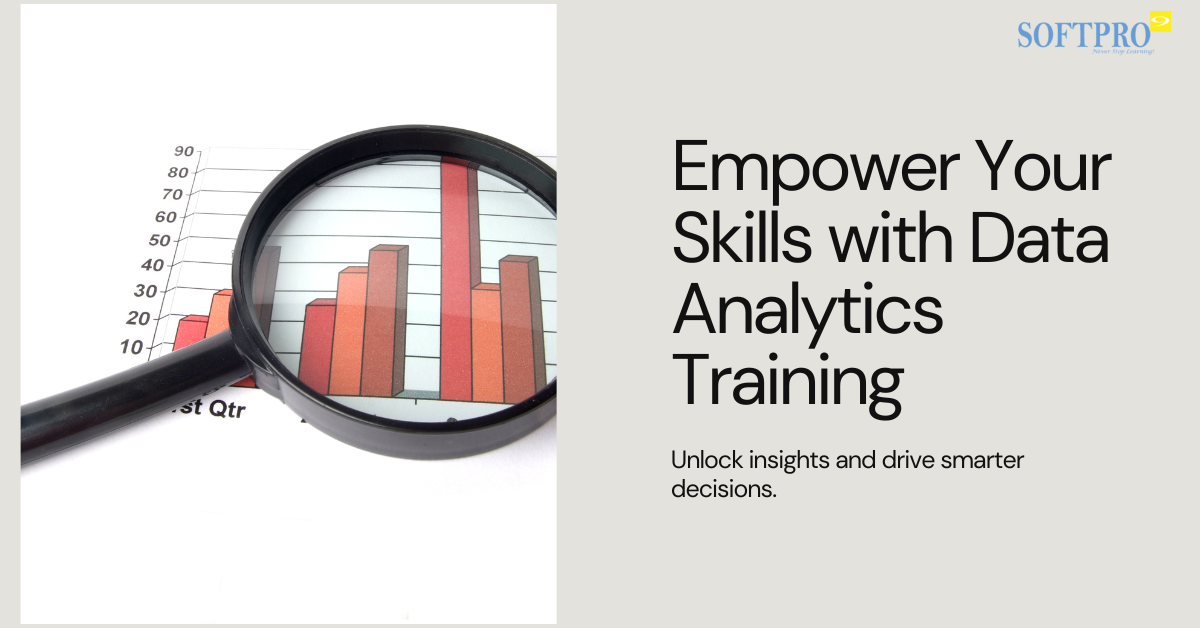
Top 10 Features of Data Analytics Courses
#1 Myinstitutes.com is one of the Best Educational Portal and Training Institutes in MYSORE, MANGALORE, and BANGALORE.
In today’s data-driven world, professionals across industries seek to harness data analytics’ power to make informed decisions, streamline processes, and drive growth. Data Analytics Courses have surged in popularity, designed to cater to this increasing demand. However, not all data analytics programs are created equal. Here’s a detailed breakdown of the top 10 essential features to look for in a data analytics course, ensuring you get the best learning experience and career outcomes.
1. Comprehensive Curriculum
A well-rounded data analytics course should cover every phase of the data analytics lifecycle. This includes data collection, data cleaning and preprocessing, data analysis, visualization, and result interpretation. The curriculum should also introduce key statistical concepts, analytical methods, and advanced topics like machine learning, deep learning, or predictive analytics.
A robust course will teach various data types (structured, semi-structured, and unstructured) and methodologies such as descriptive, diagnostic, predictive, and prescriptive analytics. The aim is to build a strong foundational knowledge, ensuring learners can handle complex data challenges in real-world scenarios.
2. Hands-on Projects and Case Studies
Practical experience is crucial when learning data analytics. A course that emphasizes hands-on learning with projects and case studies enables students to apply theoretical concepts to real-world problems. These projects usually involve working with large, real-world datasets to mimic challenges that data professionals face in industries such as finance, healthcare, marketing, and retail.
By completing hands-on projects, students develop critical thinking and problem-solving skills, which are essential in data-driven roles. A strong portfolio of completed projects also becomes a valuable asset when seeking job opportunities, showcasing the learner’s ability to tackle real data issues.
3. Industry-Standard Tools and Technologies
The data analytics ecosystem is rich with tools that are widely used by professionals, and an effective course should provide in-depth training on these tools. Programs should cover essential programming languages like Python and R, which are key for data analysis and statistical modeling.
In addition, tools such as SQL for database management, Excel for simpler analytics tasks, and Tableau or Power BI for data visualization should be part of the curriculum. Courses that integrate these tools ensure that learners are job-ready and capable of using industry-standard technologies upon graduation.
4. Expert Instructors with Real-World Experience
The quality of the instructors makes a significant impact on the learning experience. Leading data analytics courses are taught by industry experts who have a wealth of experience in applying data analytics techniques in real business contexts.
These instructors can provide valuable insights beyond the textbook, offering a glimpse into current trends, practical tips, and the realities of working with data in different sectors. Experienced instructors can also guide students through complex topics like machine learning, natural language processing, and advanced statistical modeling in a way that makes these concepts more accessible.
5. Flexible Learning Formats
Flexibility in learning is a critical factor for many professionals and students who are juggling multiple commitments. The top data analytics courses offer a range of options including full-time, part-time, and self-paced learning. With the rise of online education platforms, learners can access course materials, attend live or recorded lectures, and participate in discussions from the comfort of their homes.
Many courses also provide mobile app access, allowing learning on the go. Flexibility ensures that students with busy work schedules or other obligations can still gain the skills they need without compromising on the quality of the education.
6. Certification and Accreditation
One of the key benefits of completing a data analytics course is earning a certification that is recognized by industry employers. Whether it’s a university-endorsed program or a certification from a trusted online learning platform like Coursera or Udemy, having proof of your competency is vital for career progression.
Some programs are also accredited by professional organizations or bodies within the data science community, adding further weight to the certification. Certifications enhance a candidate’s credibility in the job market and are often a prerequisite for more advanced roles.
7. Mentorship and Career Support
Top-tier courses often provide mentorship and career support, offering students personalized guidance and resources to achieve their career goals. Mentorship programs connect students with industry professionals who can provide advice, feedback, and career strategies.
Career support services may include resume-building workshops, mock interviews, and networking events, all designed to prepare students for the competitive job market. Some programs even have partnerships with companies to provide internships or job placement assistance, helping students transition smoothly from learning to employment.
8. Interactive Learning Environment
An engaging and interactive learning environment can significantly enhance the educational experience. Courses that incorporate quizzes, peer discussions, and collaborative group projects foster deeper engagement and understanding of the material.
By allowing students to interact with each other, share ideas, and solve problems collaboratively, the course creates a community of learners. Interactive learning formats, including live coding sessions, practical labs, and discussion forums, help reinforce concepts and maintain motivation throughout the course.
9. Up-to-date Content
The field of data analytics is constantly evolving, with new tools, techniques, and trends emerging regularly. It’s important to select a course that is frequently updated to reflect these changes.
A cutting-edge curriculum will include the latest developments in big data technologies, cloud computing platforms like AWS and Google Cloud, and advances in AI and machine learning. Courses that remain current ensure that learners are gaining the most relevant skills and knowledge, giving them an edge in the fast-paced data industry.
10. Networking Opportunities
One of the often-overlooked benefits of a great data analytics course is the opportunity to build connections with peers, instructors, and professionals in the industry. Networking can open doors to new job opportunities, collaborations on projects, or mentorship. Many courses foster a community-driven learning environment, encouraging students to share their work, participate in alumni networks, or attend industry-related events.
Additionally, some courses provide access to exclusive industry events, webinars, and guest lectures from leading data professionals, allowing students to expand their professional network and stay informed about the latest trends.
In conclusion, the top features of a Data Analytics Course should blend theoretical knowledge with practical experience, taught by experienced professionals while providing students with up-to-date tools and a supportive learning environment. By choosing a course that incorporates these 10 essential features, aspiring data analysts can set themselves up for success, gaining the skills and confidence to excel in their careers.



